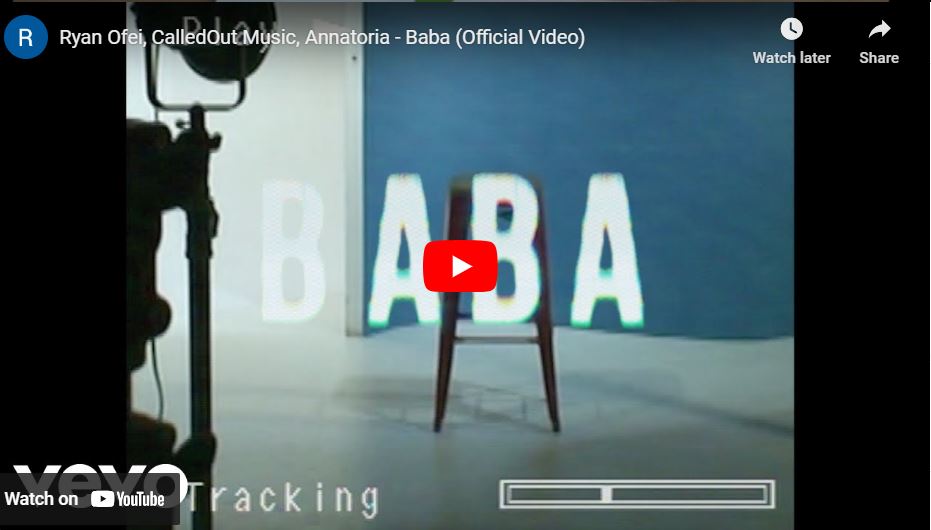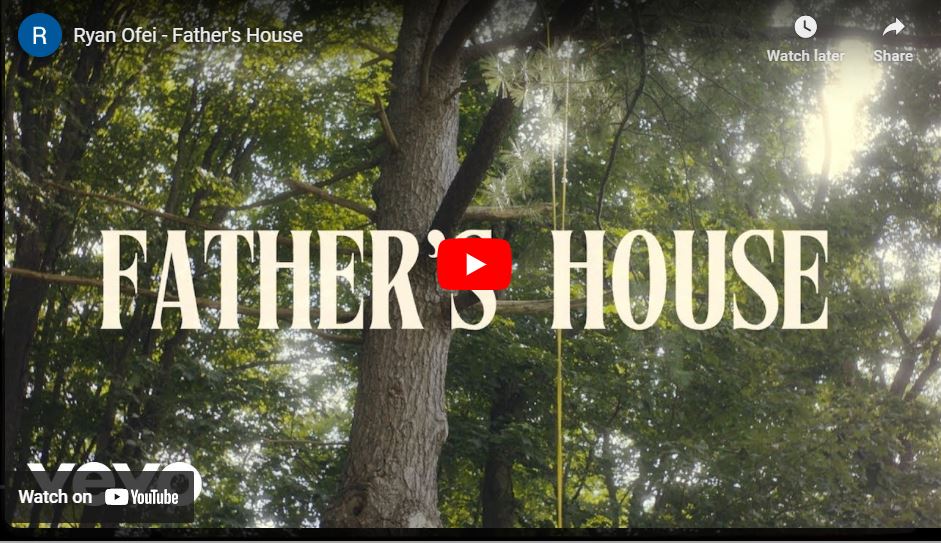In order for some of Grammy Award-winning Christian music artist Ryan Ofei’s songs to take flight, he literally boards an aircraft.
In a live, in-person interview conducted in January of 2025, during a SoundDecisions song camp held at Kilometre House in downtown Toronto – where he was working with Kevin Ekofo, Jordan Manswell, and Akeel Henry, among others – Ghanian-Canadian recording artist and one-time member of Atlanta-based Christian worship music collective Maverick City Music says the seeds of some songs land while he’s jetting from city to city.
“I make some of my best songs on the plane,” says Ofei, currently enjoying success with his debut solo album, Restore – which has earned more than 15 million cumulative streams since it was released in the summer of 2024. “I take a lot of plane trips ’cause I’m going around singing and leading worship at churches. I’ll be on the plane and I’ll get an idea or a melody. It’s so funny, because if you hear the voice memo stuff, there’s all this white noise. But a lot of the time, I feel that’s where I get some of my best ideas.”
It’s no surprise that U.K.-born, Dallas-based SOCAN member Ofei feels so inspired by travel, since he’s called many places “home” over his 31 years: Accra, Ghana; Columbus, Ohio; Hamilton, Milton, and Ottawa, Ontario among them.
It was his time in Canada’s capital where a harrowing near-death experience defined his current career path. “I celebrated my 19th birthday in Montréal, and while driving back to Ottawa, an 18-wheeler tried to overtake us during a blizzard,” says Ofei. “It started skidding towards us – and it was such a supernatural experience, because I don’t know how we got around it. I was screaming at my friend, ‘Drive! Drive! Drive!’ Our car was just moved out the way, and we saw the truck disappear behind us.
“That was just such a close-to-death experience that it really made me sit up straight in my seat, look at life differently, and ask myself, ‘What am I doing with my talents, my gifts?’ I hadn’t forgotten about my faith, but I’d stepped away from it. I started getting into creation, and recording with this newfound purpose.”
As a result, Ofei eventually wrote songs over Zoom for Maverick City Music during the pandemic, joining them both in the studio and on the road – once international travel restrictions were lifted. He also contributed to their Best Gospel Album Grammy winner Kingdom Book One Deluxe, which they recorded with Kirk Franklin.
“It was such an incredible experience,” he recalls. “The biggest thing for me was that it made a lot of things feel like reality. As someone who’s grown up listening to Christian worship music, to be able to play [New York City’s] Barclays Center, and other arenas filled with 10,000-to-20,000 people, switched something on in my brain. I was like, ‘Oh, this is a thing; there are people who listen to this, and love this type of music the way that I do.’ I wanted to reach them. So, Maverick City Music was definitely a massive inspiration for me, and opened my eyes.”
With songs such as “Daily,” featuring Becca Folkes and Limoblaze; “Baba” co-starring CalledOutMusic and Annatoria; and “Restore,” influenced by his new connection with older half-brother Emmanuel, Ofei is fusing Ghanian highlife music, the Nigerian Yoruba language, and afrobeat polyrhythms into his particular brand of Christian music. It’s a blend he’ll explore more deeply on his sophomore project, which is slated for a possible release in 2025.

Select the image to access the YouTube video of the Ryan Ofei song “Baba” (with CalledOut Music, Annatoria)
And although he starts writing his songs independently, he prefers to finish them collectively. “Collaboration just pulls something out of me,” he says, and adds that the Gospel genre requires a different creative mindset. “The focus of Christian music is really the message, and not the sound. Technically speaking, Christian music has a bunch of sub-genres, like Christian Rock, Christian R&B, and Christian Hip-Hop. What unites all of those things is faith, not necessarily sonics.
“The purpose really is to be like a Sunday mass. We keep that in mind for the lyrics, or even how certain things would be sung. We try not to make it too crazy, but it’s still music; we still have fun and make it creative, as best as we can.
“I think I make a span of Christian music – stuff that feels more like Christian Afro and Christian R&B, but also traditional church songs. When I performed in Toronto at TD Music Hall [on Nov. 29, 2024], the biggest thing for me was that people were singing my songs word-for-word. It’s something that they’d internalized, and people would share testimonies. Like, ‘I’ve been diagnosed with cancer, and this music has helped me with my healing journey.’
“Those things mean the absolute most to me: impacting people’s lives. That’s number one to me, if I’m gauging success.”
